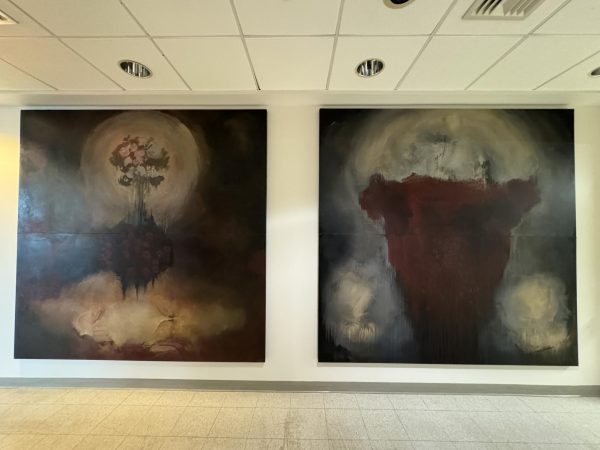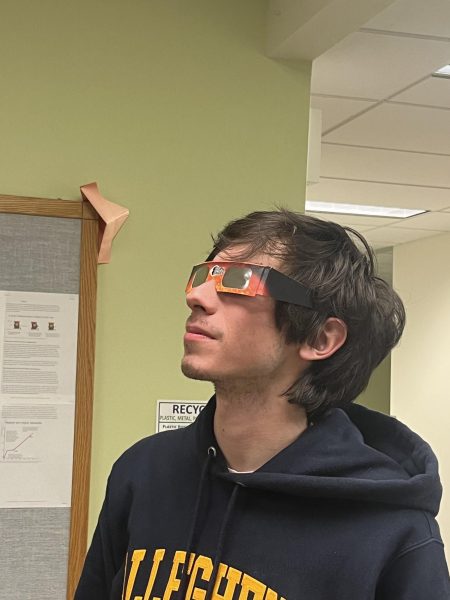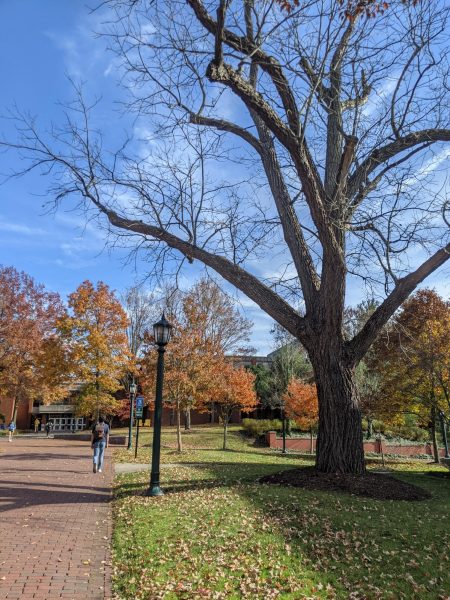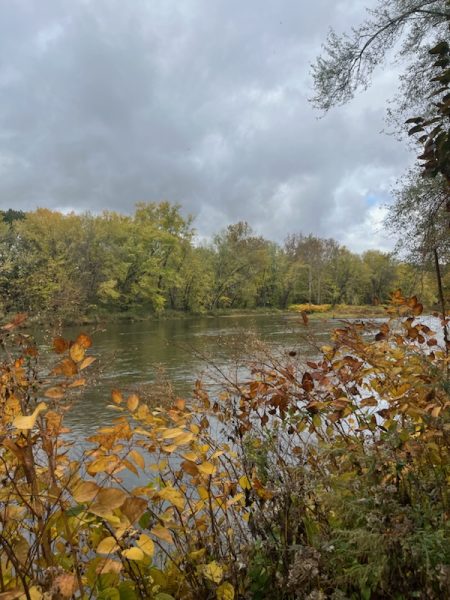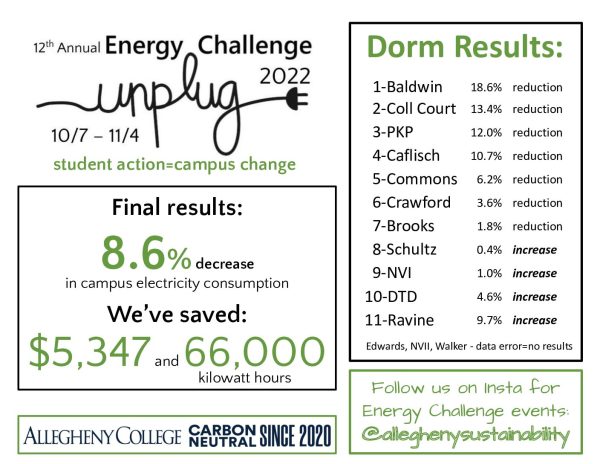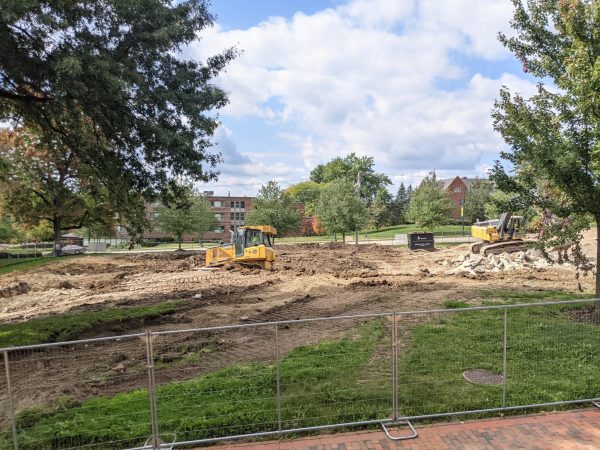Allegheny students win NOAA Hollings scholarship award
Three Allegheny STEM students were selected to receive the Ernest F. Hollings Undergraduate Scholarship awarded by the National Oceanic and Atmospheric Administration — Grace O’Malley, ’20, biology major and Spanish minor, Allyson Wood, ’20, environmental science major and environmental writing minor, and Megan Hazlett, ’19 environmental science and biology double major. O’ Malley was awarded earlier this year, and Wood was awarded the scholarship in 2017.
The Hollings Scholarship is a competitive award that provides each chosen student with two years of tuition aid and a 10-week paid summer internship to conduct research alongside a NOAA mentor. The internship places scholars in a hands-on learning environment so they can gain experience in science, technology, research and education management. Only about 130 students per year receive the scholarship, and 75 percent of NOAA Undergraduate Scholarship alumni eventually move forward to pursue graduate programs at higher institutions.
The NOAA website reports that Hollings alumni typically feel their NOAA experience “influenced their academic and career paths, expanded their professional networks and improved their skills for working in NOAA mission fields.”
“I don’t have my internship until this coming summer. It’s a scholarship and internship program, so you get funding for your junior and senior year, and then the summer between, you get an internship at any of the NOAA facilities, and they’re all over the United States,” O’Malley said. “So in the beginning of October, they’ll release a job database, and we can go through and look at all the available projects that we can work on for the summer, and speak with a mentor and see if it would be a good fit, then go from there.”
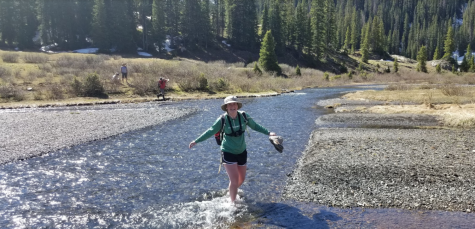
Campus: What class at Allegheny would you say has been most influential in your applying for the scholarship?
O’Malley: FS Bio was probably the one that prepared me the most, just because we did mini research projects, and we were able to go through the hypothesis of experimental design, and then writing the paper and presenting the information.
O’Malley also stated, that her interest in Marine Biology was an additional reason to why the Hollings Scholarship appealed to her.
Campus: What was your initial reaction when you discovered that you won the award?
O’Malley: I actually got the email while I was in class, and I opened it because I saw that it was from NOAA, and I actually stood up and screamed in the middle of class because I was so excited.
Campus: What advice would you give to someone who wants to apply for the scholarship?
O’Malley: I would say don’t be afraid to ask for help with your essay and your application in general.
Wood won the scholarship in 2017 and conducted her NOAA research during the summer of 2018.
“My research was looking at Atlantic sharks, so I was based in North Carolina at the Beaufort lab, and every year NOAA does a survey where they put video cameras on traps, and then I take their videos and just walk them through,” Wood said. “The gist of my research was I was comparing my protocol of watching the videos to how a typical NOAA employee would watch them.”
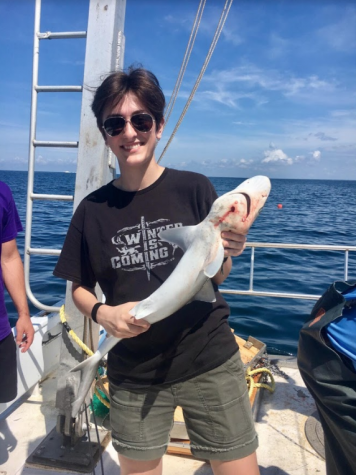
Campus: What were your initial reactions when you discovered that you won the award, and how do you feel now that some time has passed?
Wood: I was really excited. I had no idea what my project was going to be. Once I found out that it was going to be sharks, I was pretty excited. Now that some time has passed, I’m really glad that I got to see how the government agency works, because it is different from academia, where you’re teaching, so it was interesting for me to see how much was just focused on the data.
Campus: Is there anything you learned in North Carolina that you now apply to your current research (the Senior Comp)?
Wood: There’s not really any specific correlations, but just the amount of persistence to look through raw data … I feel like I’m a better scientist now, and I’m more confident going into the Comp as opposed to all freaked out.
Campus: What is some advice you would give to someone who wants to apply for the Hollings Scholarship?
Wood: The first thing I would advise them to do is talk to Patrick Jackson in the Fellowship Office, and then look at the website and see what NOAA’s goals are, and then sort of see what in your life, have you done that pertains to those goals, and form a story around that.
Campus: Describe the most memorable moment you had while conducting research.
Wood: So while I was there, I got to go out on a Shark Longline-Survey boat, so I got to hold a Shark at one point. And then we also caught and tagged an eight-foot tiger shark.
discovered that you won the award?
O’Malley: I actually got the email while I was in class, and I opened it because I saw that it was from NOAA, and I actually stood up and screamed in the middle of class because I was so excited.
Campus: What advice would you give to someone who wants to apply for the scholarship?
O’Malley: I would say don’t be afraid to ask for help with your essay and your application in general.
Wood won the scholarship in 2017 and conducted her NOAA research during the summer of 2018.
“My research was looking at Atlantic sharks, so I was based in North Carolina at the Beaufort lab, and every year NOAA does a survey where they put video cameras on traps, and then I take their videos and just walk them through,” Wood said. “The gist of my research was I was comparing my protocol of watching the videos to how a typical NOAA employee would watch them.”
Campus: What were your initial reactions when you discovered that you won the award, and how do you feel now that some time has passed?
Wood: I was really excited. I had no idea what my project was going to be. Once I found out that it was going to be sharks, I was pretty excited. Now that some time has passed, I’m really glad that I got to see how the government agency works, because it is different from academia, where you’re teaching, so it was interesting for me to see how much was just focused on the data.
Campus: Is there anything you learned in North Carolina that you now apply to your current research (the Senior Comp)?
Wood: There’s not really any specific correlations, but just the amount of persistence to look through raw data … I feel like I’m a better scientist now, and I’m more confident going into the Comp as opposed to all freaked out.
Campus: What is some advice you would give to someone who wants to apply for the Hollings Scholarship?
Wood: The first thing I would advise them to do is talk to Patrick Jackson in the Fellowship Office, and then look at the website and see what NOAA’s goals are, and then sort of see what in your life, have you done that pertains to those goals, and form a story around that.
Campus: Describe the most memorable moment you had while conducting research.
Wood: So while I was there, I got to go out on a Shark Longline-Survey boat, so I got to hold a Shark at one point. And then we also caught and tagged an eight-foot tiger shark.



